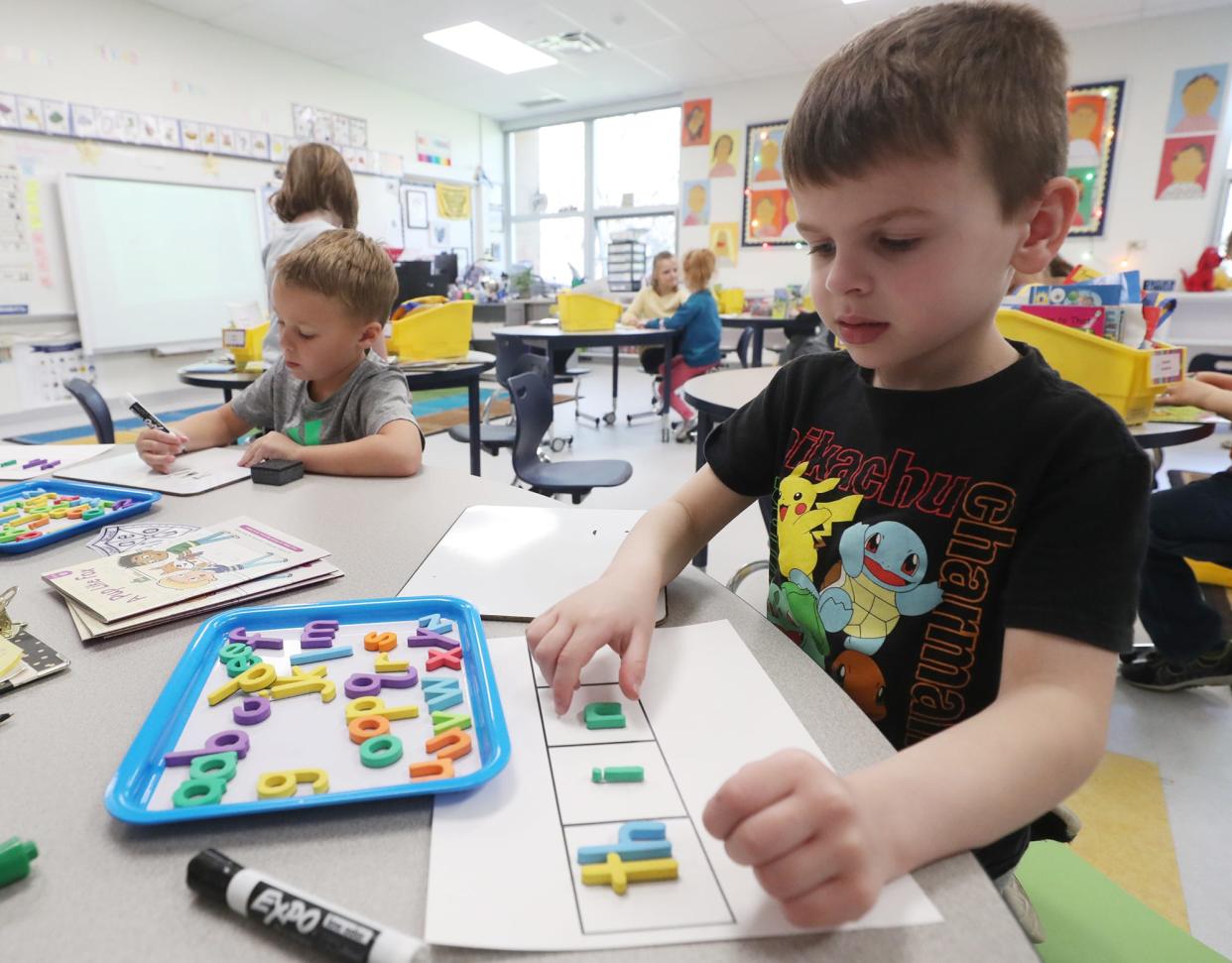What's 'balanced literacy' vs. 'science of reading'? What parents need to know

School districts across the region and nationwide have been facing a war of words — or, more accurately, a war over how to teach kids to read words.
In recent years, a growing number of education experts have been advocating a shift away from a kind of reading curriculum known as "balanced literacy" toward a structured and phonics-based "science of reading."
Gov. Mike DeWine is now urging every school district in Ohio to switch to science of reading curriculum, if they haven't already.
DeWine is pushing the legislature for a mandate that districts use a curriculum that meets science of reading standards. He also has money in his budget proposal to pay for districts to adopt new materials from an approved list that would be created by the Ohio Department of Education.
Here's a quick primer on the terms used to explain the different approaches used to teach young students how to read:
What is 'balanced literacy?'
Balanced literacy usually includes phonics but focuses more heavily on getting students to love reading at an early age. It employs the theory that students learn to read by reading and through exposure to rich literature.
Critics say that isn't sufficient to give students the tools they need to actually know how to read. And without those tools, they won't love to read and may struggle with academics in general if they lack the skills to figure out more complicated words.
Balanced literacy also can include the "cueing system," which teaches students ways to figure out a word beyond just looking at the word itself. That could include looking at the pictures, or just the first two letters and then guessing what the word is, and then checking the sentence to see if that word would make sense.
What is 'science of reading?'
The science of reading has a structured, building-block approach, starting with awareness of sounds and letters, and explicit, direct instruction from the teacher to students about how to break down a word to figure out how it sounds and then what it means.
Critics of the science of reading movement argue that students can get bogged down in the minutia of phonics and forget to learn to love to read.
What is phonics?
Phonics teaches students to link letters or groups of letters with the sounds they make. Phonics gives beginning readers the tools they need to sound out words.
Science of reading curriculums are heavily phonics-based.
What is phonemic awareness?
Phonemic awareness is the ability to hear and recognize the individual sounds — known as phonemes — in a spoken word. The word "cat," for example, is made up of three individual sounds: "c," "a" and "t."
Research has shown a link between phonemic awareness and later reading successes.
What are 'leveled' and 'decodable' books?
The governor's budget proposal includes funding for districts to purchase new reading materials, including what's known as "decodable books" that use a repetitive sound and letter pattern that build on phonics instruction.
An easy "leveled" book could be about things that fly — a helicopter, an airplane, a hang glider or a bat. The book may be simple, but "airplane" is a word with multiple sounds and syllables. A decodable book would be a story with several words of the same level of phonics, like rhyming words — mat, bat, sat — or ones that all start with the same letters and sounds, like the "ph" in "phone" or "phase."
Contact education reporter Jennifer Pignolet at jpignolet@thebeaconjournal.com, at 330-996-3216 or on Twitter @JenPignolet.
This article originally appeared on Akron Beacon Journal: 'Balanced literacy' vs. 'science of reading:' What parents need to know

